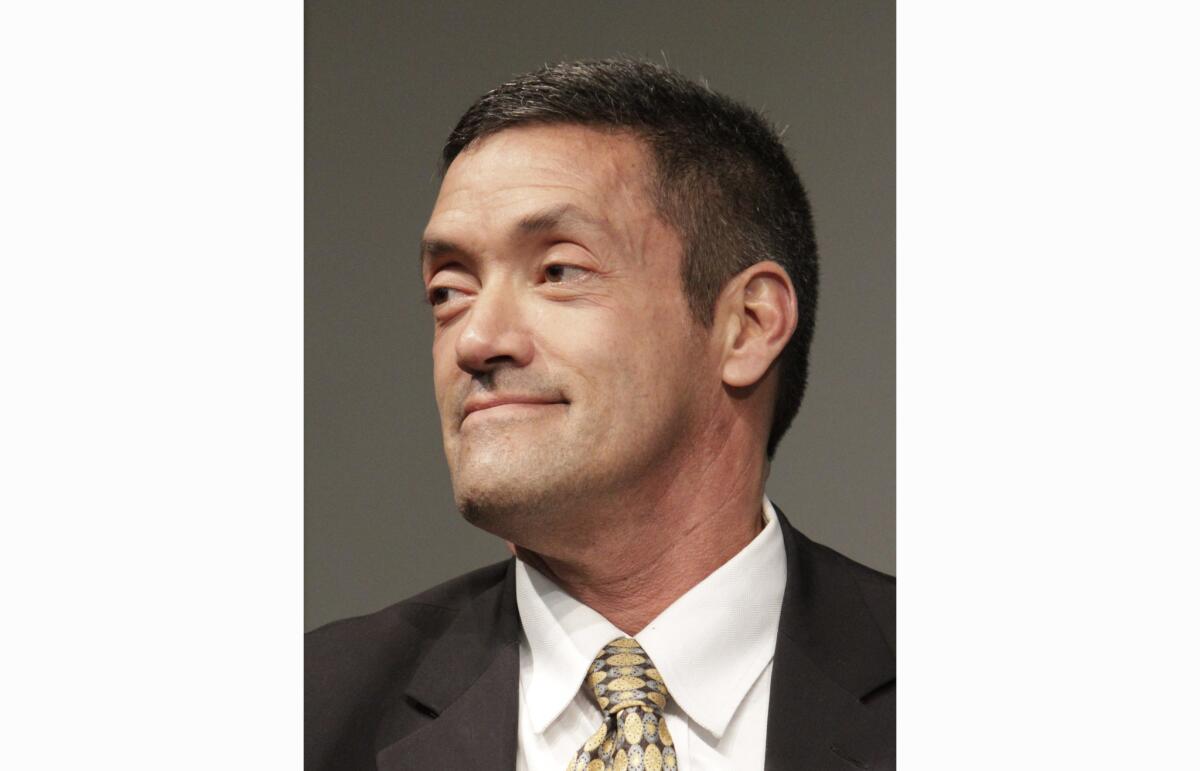Former aide to West Hollywood councilman will receive $500,000 in lawsuit settlement

West Hollywood City Councilman John Duran has settled a lawsuit filed against him and the city by a former aide.
A former aide to West Hollywood City Councilman John Duran who sued the city and his boss alleging sexual harassment and wrongful punishment is set to receive $500,000 after settling with both parties earlier this month, according to the agreement obtained by The Times.
Under the terms of the settlement with former City Council deputy Ian Owens, Duran and the city admitted no wrongdoing.
“This agreement shall not in any way be construed as an admission by defendants or Owens of the truth of any allegations, or an admission of any unlawful acts or other liability whatsoever,” the settlement states.
The money will be paid by the city’s insurers, according to the settlement. Owens declined to comment, and his attorneys could not be reached Monday.
SIGN UP for the free Essential Politics newsletter >>
Owens said that he was suspended from his job after he reported alleged misconduct by an aide to another city councilman. His concerns were ignored, he said, because Duran was angry that Owens had spurned his sexual advances. He sued the city and Duran in Los Angeles County Superior Court last year.
West Hollywood City Atty. Michael Jenkins said in an interview that an independent investigation showed Duran “did not engage in sexual harassment.”
Jenkins said the cost of going to trial was a major consideration in settling the lawsuit, adding that insurers often will “make a calculated business decision to negotiate a settlement.”
“In the end, there’s always risk in litigation even if a party is very confident of its position,” Jenkins said.
Owens was placed on paid administrative leave in January 2015 amid accusations that he bugged the City Hall office of Fran Solomon, the former deputy to Councilman John Heilman. Owens suspected that Solomon was soliciting campaign contributions for her boss, who was running for reelection, on city time. Owens sent snippets from her office telephone conversations to numerous email accounts in the city, including those of reporters.
Jenkins declined to comment about investigations completed on Owens and Solomon, citing confidentiality of personnel matters.
In the lawsuit, Owens said he told Duran and City Manager Paul Arevalo about his suspicions regarding Solomon. Owens “went public with his allegations” only because he was “frustrated by the lack of response” from his supervisors, court documents said.
The city “abruptly and unlawfully retaliated” against him by suspending him, the lawsuit said. Owens said he was ignored because of sexual tension between him and Duran.
According to the lawsuit, Duran and Owens met in April 2012 via Grindr, a smartphone dating app for gay and bisexual men. They had a sexual encounter the first night they met in person, and Duran offered Owens the council deputy position three months later, the suit said.
In the lawsuit, Owens said Duran made sexual advances or sexually suggestive comments toward him “well over 100 times.”
Duran has repeatedly denied the allegations, saying Owens did not accuse him of harassment until he was accused of wrongdoing himself.
Duran has acknowledged that he and Owens were intimate and that they met through Grindr. He said they became friends and that he hired Owens because his degree in finance and experience in hotel development and real estate made him well-qualified for the job.
“People are trying to make him sound like he was unqualified and got the job based on a one-time incident,” Duran told The Times in March. “It’s just not true.”
The City Council voted last summer to eliminate the controversial council deputy system, which spawned high salaries and political infighting. Owens was formally laid off by the city in December.
Twitter: @haileybranson
ALSO
Truck driver charged with manslaughter in 2015 Oxnard Metrolink crash
Only one of California’s pot legalization initiatives has the green that counts
More to Read
Sign up for Essential California
The most important California stories and recommendations in your inbox every morning.
You may occasionally receive promotional content from the Los Angeles Times.











